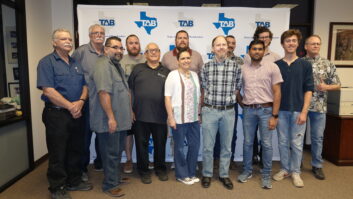
The FCC has released a Notice of Proposed Rulemaking seeking to expand the online public file requirements to include terrestrial radio licensees. The commission already requires TV stations to make public files accessible online.
Recently, I filed formal comments questioning why most radio stations should be subjected to the new rule and challenging the requirement for maintaining any public file at all for most radio stations.
The commission’s stated goal is the same as the previous TV proceeding, “to modernize the procedures broadcasters use to inform the public about how they are serving their communities, make information concerning broadcast service more accessible to the public, and reduce broadcasters’ cost of compliance … [These] online public file rules were the culmination of a more than decade-long effort to make information regarding how a broadcast station serves the public interest easier to understand and more accessible, promote discussion between the licensee and its community, and lessen the need for government involvement in ensuring that a station is meeting its public interest obligations.”
What is not addressed is whether the time has come to eliminate this requirement for most radio stations. I believe it has.
The requirement was established in 1938 when the industry was as new and as exciting as the Internet is today. Radio, however, is no longer the dominant voice in the marketplace. While it is still important to listeners, it enjoys little of its early dominance and excitement. There are dozens of new media to choose from, and radio’s slice of the marketplace of ideas has dwindled. Radio has become an entertainment medium. Few stations editorialize for fear of angering an advertiser. Except in very large markets, news and information is almost impossible to find. People look to the Internet for news, commentary and information; and almost everyone has the tools to be a news reporter given the smartphone photo and video access to sites such as Facebook, Google, Twitter and a host of others.
So what is radio’s public interest requirement in this more modern age?
WHAT’S THE MEANING OF THIS?
Neither word — public nor interest — seems to have been parsed in this proceeding. The assumption is that the public’s interest in the medium has not changed in 76 years; but the public has changed and its interests have changed.
The public does not look to radio, for news and information, except in times of local or national emergency. The public turns to radio for music and entertainment. The public is not interested in how radio stations are owned, managed or programmed, as they might have been in the industry’s infancy. If the public likes what it hears, it listens.
Back in 1938, we didn’t have thousands of stations to choose from or ratings to help determine if a station was resonating with its listeners. Today, the smart broadcaster adjusts his programming to suit the whims of the listener. Anathema to an entertainment format would be a public affairs program on an upcoming sewer bond proposal.
Broadcasters have learned that such programming drives listeners away. That is why public affairs programs are aired during periods of low listenership, on Sunday mornings at 5 a.m. The FCC requirement to air public affairs programs is fulfilled, but the gesture is meaningless.
Furthermore, most stations in smaller markets have no money to produce meaningful public affairs programs, so they air programs that are available free from sources such as their national network (if they have one), state broadcaster associations, colleges or extension services.
Issues lists often are reverse-engineered and reflect what free programs are available, and the charade of public service continues. If the public is not interested in obtaining this information from radio, how can such a requirement be in the public interest?
REALITY CHECK
The FCC should adapt its communications regulations to reflect that the vast majority of radio listeners don’t want news, information or public affairs programs to interrupt their entertainment experience. When they want debate or discussion, people turn to social media. That’s where most consume news and information and that’s why even the White House doesn’t rely on radio the way it used to.
Yes, there are people who consume news on the radio, and most live in one of the 19 markets that feature all-news stations. Some have substantial followings. There are 19 all-news stations in the U.S., and 11 offer news “full-time.” The rest offer the format on a part-time basis in particular dayparts. NPR also offers news programming but it appears to be more niche in in its offerings than most others.
All-news is the most expensive format in radio. That’s why it is not available in every market and new entrants to the format recently failed miserably in New York and Chicago. FCC rules need to take this reality into consideration and stop pretending that it’s 1945 and that radio is the primary source of news and information.
REAL-LIFE EXPERIENCES
I conducted an informal poll of my clients; 13 responded representing 37 radio stations.
I asked one question: Has anyone from the general public ever asked to inspect your public file? All respondents said no. In all cases, only an FCC inspector or disgruntled competitor has asked to see these files.
Moving public files to the FCC’s Internet servers serves no practical purpose. The FCC is wrong when it claims that the public wants and needs an easier way to view those files.
Two of the stated goals in this proceeding are to reduce costs of compliance and to reduce government oversight. This proposal does not reduce costs of compliance and actually puts the government at the center of the effort. In fact, the costs for compliance will significantly increase along with the government’s involvement. The NPRM adroitly glosses over these points.
REDUNDANCY
Today, the FCC’s website contains almost all of the information required to be in a public file with the exception of the Issues Lists and Programs lists, the political advertising requests and some contract information, which usually pertains to how the station was purchased.
There is no compelling reason individual stations need to upload all of their public file materials when 90 percent or more of the information is available at fcc.gov.
Preparing issues and programs list and airing of public affairs programs are rules that no longer have relevancy. Why must radio go through this empty gesture?
Contract information is of no interest to the public, either. It may have mattered 76 years ago, but such information is not sought today. If the FCC believes that contract information is still vitally important, it could require that the contract information be supplied at the time an application is filed. That way, the information is appropriately part of the application and as such, the public could easily find it online.
The political files are statutory and can’t be eliminated in a rulemaking proceeding. To address this issue, stations could easily keep a paper-based file of political time requests and their dispositions, as most do, now.
Our industry can be divided into two groups: publicly traded companies, such as iHeartMedia, Cumulus and others; and then everybody else.
The publicly traded stations use Wall Street investor money to acquire stations. They have thousands of shareholders with little skin in the game beyond their initial stock purchase. The privately owned stations are run by moms and pops and hopeful entrepreneurs. The “little” guys have their entire lives wrapped up in their stations and are mortgaged to the hilt.
The locally owned stations are operating on a shoestring in most markets below market 50. I hear stories every day of how owners go without paychecks just so they can pay the bills. Forcing these stations to make the transition to an online public file on the FCC’s servers will create another regulatory burden that stations cannot afford.
If the FCC persists in keeping its outdated, duplicative and irrelevant file requirements, perhaps it should do so for the publicly traded station groups or in markets larger than market 50. For small markets, this 76-year-old rule needs to see its sunset.
To keep this industry vital, the FCC needs to eliminate regulatory underbrush, yield to the new needs and interests of the marketplace and eliminate rules that serve no purpose in the modern age. It needs to understand that small-market stations will serve the interests of their markets because their investments and livelihoods depend on it. They can easily tell, from the ratings and from their advertisers, if their efforts hit the mark.
So what real purpose might there be in this online public file proposal? Perhaps it’s nothing more than a “red-light camera,” making it easier for the FCC to hand out $10,000 fines. If all of the public files are stored on its servers, it would be easy for a staff member to review public files with an eye toward making lists of violations.
ONE SIZE DOESN’T FIT ALL
If we eliminate issues lists and programs lists, and the cacophony of pointless public affairs programs the regulation produces, what yardstick do we use to measure whether a station has served the needs and interests of its community?
First, we can probably agree that airing programs no one wants to hear does not demonstrate whether a station serves the public interest. Perhaps for the next 10 years we simply eliminate the requirement and watch what happens. I believe the free market will dictate, better than the government ever could, how stations should serve their communities. If a station ignores the needs and interests of its community, it will not survive.
Stations know that there is good money to be made in community-based programming, and many stations have invested heavily in the concept within the scope of their formats. Why? Because it makes them money.
Unfortunately, many of these efforts do not satisfy the rigid issues and programs lists requirements, so stations cannot take credit for them the way they can if the program is a stodgy public affairs presentation. It could be argued that the archaic rules actually are a disincentive to stations to better serve their markets because they force adherence to a programming model that is outdated and boring. Free these stations from those constraints and we will see more appropriate community service efforts that are far more interesting and inventive than what we are getting, now.
Instead of an outdated requirement to produce quarterly issues and programs lists, it would be more meaningful (and less costly) for stations to submit an annual report to the FCC detailing what it has done during the year to address the needs and interests of its community. If the FCC wants to make those reports publicly available, it can easily do so through fcc.gov.
Now is the time to lighten the regulatory burden faced by broadcasters. It is not the time to increase that burden. The outdated public file requirements need to be eliminated in all but the very largest markets or for publicly traded companies only. Stations need the freedom to decide how to best serve the needs and interests of their communities.
Richard J. “Rick” Hayes, Jr. started his career in radio at the age of 14. As a communications attorney, he has represented radio clients in small and medium markets for over 33 years.
Comment on this or any story. Write to [email protected].












